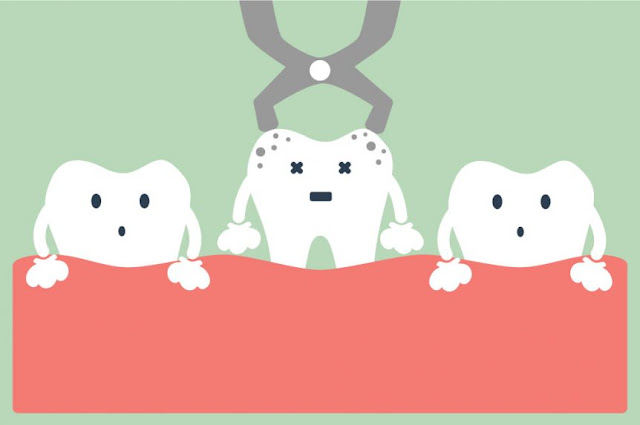Wisdom tooth extractions among teenagers and adults are
common, but other reasons also exist to necessitate tooth extractions.
Tooth extractions can be necessitated by infections,
crowding, and excessive tooth decay. People considering orthodontic treatments
to straighten their teeth may also need to have a couple of teeth extracted.
People undergoing chemotherapy or planning an organ transplant will need to get
their compromised teeth extracted to keep their mouth healthy.
Oral surgeons or dentists from general dentistry can both
perform tooth extractions in a quick procedure that will not require the
patient to endure for long on the dentist’s chair. Patients are administered
local, intravenous, or a combination of both types of anesthesia. Extracting
visible teeth is known as a simple extraction, while impacted teeth require an
involved procedure.
Family Dentistry In Central CT will take an x-ray of the
tooth before scheduling the procedure. People undergoing the extraction are
recommended to provide the dentist with information about any medications they
are having, including vitamins, over-the-counter medications, and supplements.
They must also inform the dentist about any medical procedure they are
scheduled to undergo for another medical condition with an intravenous drug
known as a bisphosphonate. In such cases, the dentist will recommend postponing
the extraction or scheduling the procedure before the other treatment.
The dentist at this facility will want to ensure all
conditions of the patient are stable or are stabilized before the tooth
extraction. He or she may prescribe antibiotics in the days before the
procedure if the extraction is expected to take a long time, the patient has a
weakened immune system or an infection or has a specific medical condition.
When simple extractions are being performed, dentists
generally, administer local anesthesia to make the patient calm and relaxed.
Patients will experience no pain, but only pressure during the extraction that
will be performed by using an instrument called an elevator to loosen the tooth
before extracting it with forceps.
Surgical extractions will require the dentist to administer
local as well as intravenous anesthesia. The bone around the tooth of the patient
may need to be removed, or the tooth cut before it can be extracted.
Most dentists are experienced in performing tooth extractions, as they are quite common. They become necessary for any one of the
reasons mentioned earlier. Although no risks are involved with the procedure,
it would be sensible for the patient to follow the instructions of the dentist
by taking any medications suggested after the procedure and taking care to
ensure the blood clot in the hole from where the tooth was extracted remains in
place and does not dislodge. Recovery from a tooth extraction will require a
few days and the patient can begin to slowly reintroduce their regular foods
with their diet after subsisting on a diet of soft foods initially.

Comments
Post a Comment